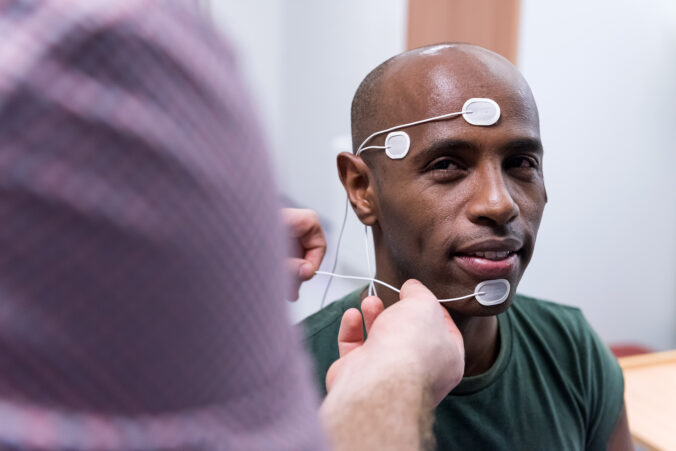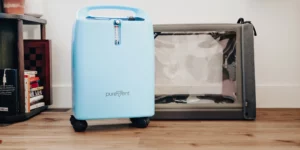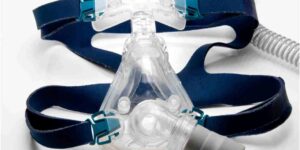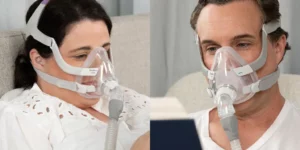In today’s fast-paced world, sleep disorders are becoming increasingly common. For many individuals, understanding the costs associated with sleep studies can be daunting. This article will help elucidate the different aspects of private sleep studies, their costs, and what you can expect from the process.
Understanding the Basics of a Private Sleep Study
What is a Private Sleep Study?
A private sleep study, or polysomnography, is a comprehensive evaluation of sleep patterns. It involves monitoring various bodily functions while you sleep, including brain activity, eye movements, heart rate, breathing patterns, and blood oxygen levels. These studies are typically conducted in a clinical setting, which allows for professional observation and the use of advanced technology.
In conclusion, understanding the private sleep study cost allows for better preparation and decision-making. Being well-informed can lead to a more satisfactory outcome and improved sleep health in the long run.
During the study, sensors and electrodes are placed on your body to collect data. This information is then analyzed by specialists to diagnose sleep disorders such as sleep apnea, insomnia, and narcolepsy. The results from a private sleep study can be crucial for determining the right treatment plan tailored to your needs. In addition to these common disorders, sleep studies can also help identify less prevalent conditions like REM sleep behavior disorder and periodic limb movement disorder, which can significantly impact your quality of life.
Why Opt for a Private Sleep Study?
Choosing a private sleep study over a traditional one can offer numerous benefits. A private setting often allows for a greater degree of comfort and personalized care. In many cases, patients can take the study in a more relaxing environment, tailored to their preferences. This can lead to more accurate data collection and a better understanding of your unique sleep issues. For instance, some private facilities may allow you to bring familiar items from home, such as your own pillow or blanket, which can help create a more soothing atmosphere conducive to sleep.
Furthermore, private sleep studies generally have shorter waiting times compared to those offered through public healthcare systems. This can be particularly beneficial if you are experiencing significant sleep disturbances and need prompt attention. Ultimately, opting for a private study may expedite the diagnosis process and enhance your overall experience. Additionally, many private sleep centers provide follow-up consultations to discuss results in detail, ensuring that you fully understand your condition and the recommended treatment options. This level of ongoing support can be invaluable as you navigate your journey toward better sleep health.
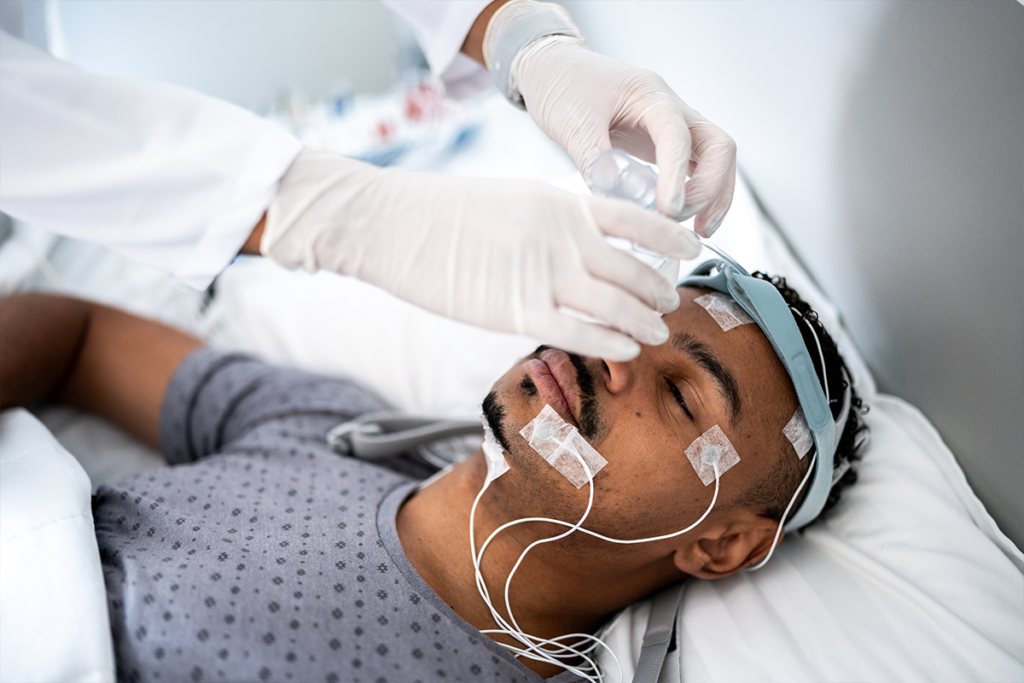
Factors Influencing the Cost of a Private Sleep Study
Type of Sleep Study
The type of sleep study you require significantly affects the overall cost. There are various types of studies, including:
- Home Sleep Apnea Testing (HSAT)
- Polysomnography (PSG)
- Multiple Sleep Latency Test (MSLT)
- Maintenance of Wakefulness Test (MWT)
Home Sleep Apnea Testing is usually less expensive since it is done at home with portable equipment. In contrast, a comprehensive polysomnography study conducted in a sleep lab typically costs more due to the extensive monitoring involved and the supervision of sleep specialists. Each type of study is designed to assess different aspects of sleep disorders, which can also influence the choice of study based on symptoms. For instance, if a patient is experiencing excessive daytime sleepiness, a Multiple Sleep Latency Test may be recommended, which requires a more detailed setup and can lead to higher costs.
Location and Facility
The location of the sleep study facility also impacts the cost. Urban centers with advanced medical facilities may charge higher fees compared to rural clinics. Additionally, well-established facilities that have an excellent reputation may command higher prices due to their expertise and the quality of service they provide. It’s important to note that while larger cities might offer more advanced technology and experienced staff, smaller clinics may provide personalized care and shorter wait times, which could be beneficial for some patients.
It’s crucial to research various facilities in your area before making a decision, as price can vary widely depending on the region and the specific services offered. Factors such as insurance coverage and the availability of financing options can also play a significant role in determining the final cost. Some facilities may offer payment plans or sliding scale fees based on income, which can make a sleep study more accessible for those concerned about financial implications.
Specialist Fees
Alongside facility fees, specialist fees represent another significant portion of the total cost. After the study is completed, a qualified sleep physician analyzes the results. The fees for these specialists can differ based on their experience, qualifications, and the complexity of the case. In some instances, additional consultations may be necessary to discuss the results and treatment options, which can further increase overall expenses.
Be sure to inquire about the qualifications of the sleep specialists at the facility and whether the cost of the analysis is included in the overall package. This can help prevent any unexpected financial surprises post-study. Furthermore, understanding the potential need for follow-up appointments or additional testing can provide a clearer picture of the total investment required for effective sleep disorder management. Engaging with specialists who are well-versed in the latest treatment options can also enhance the quality of care received, making it a worthwhile consideration despite the potentially higher costs involved. Learn more about analysis at https://academicguides.waldenu.edu/writingcenter/evidence/analysis
Average Cost of Private Sleep Studies
Cost Range for Common Sleep Studies
The cost of private sleep studies can vary greatly based on the aforementioned factors. However, on average, you can expect the following ranges:
- Home Sleep Apnea Testing (HSAT): $300 – $500
- Polysomnography (PSG): $1,000 – $3,000
- Multiple Sleep Latency Test (MSLT): $600 – $1,200
- Maintenance of Wakefulness Test (MWT): $300 – $800
These figures serve as a rough guideline, and prices may vary from one facility to another, so obtaining multiple quotes is advisable. Additionally, the complexity of your sleep disorder can influence the cost. For instance, if your sleep issues are accompanied by other medical conditions, a more comprehensive evaluation may be necessary, potentially increasing the overall expense. It’s essential to have a thorough discussion with your healthcare provider about your specific needs to ensure you receive the appropriate level of care.
Additional Costs to Consider
In addition to the base fee for the sleep study itself, there are other potential costs to keep in mind:
- Preparation Costs: Some facilities may require you to purchase sleep diaries or other preparatory materials.
- Travel Expenses: If your chosen facility is far from home, consider transportation and accommodation costs.
- Follow-up Visits: After the study, you may need to pay for additional consultations with your sleep specialist to discuss the results.
Being aware of these additional expenses will help you budget more effectively for your sleep study. Furthermore, some insurance plans may cover a portion of these costs, so it’s wise to check with your provider beforehand. Understanding your insurance coverage can significantly alleviate the financial burden associated with sleep studies. Additionally, inquire about any available payment plans or financial assistance programs that the facility may offer, as these can provide further support in managing your expenses.
Insurance and Private Sleep Studies
Does Insurance Cover Private Sleep Studies?
The coverage for private sleep studies can vary significantly among different insurance providers. Many insurance plans cover diagnostic sleep studies, especially if a physician prescribes them due to suspected disorders. However, coverage and reimbursement policies differ by plan, so it is essential to verify coverage before scheduling an appointment.
Additionally, some plans may only cover specific types of studies or require pre-authorization. Consulting with your insurance company will provide clarity regarding your specific coverage and potential out-of-pocket expenses. It’s also worth noting that the type of sleep study—whether it’s an in-lab polysomnography or a home sleep apnea test—can influence coverage. Some insurers may have a preference for one method over the other, which can impact your decision on where to seek care.
Out-of-Pocket Expenses
Even if your insurance plan covers sleep studies, there may still be out-of-pocket expenses you encounter. These can include deductibles, copayments, or costs for services not covered by your insurance. Understanding these financial obligations beforehand can help you make more informed decisions regarding your care.
If you are concerned about the costs, consider discussing financing options with the facility’s billing department. Some clinics offer payment plans or financing to help ease the burden of large expenses. Furthermore, it may be beneficial to inquire about any available discounts for upfront payments or cash payments, as some facilities may offer reduced rates for patients who can pay in full at the time of service. This proactive approach can help you navigate the financial landscape of sleep studies more effectively and ensure that you receive the necessary care without undue financial stress. Click here to read more about facilities.

Preparing for Your Private Sleep Study
What to Expect During the Study
Preparation is vital for a successful sleep study. When you arrive at the facility, the staff will guide you through the setup process. Expect to have sensors attached to various parts of your body, such as your scalp, face, and chest. This may feel unusual at first, but it is crucial for accurate monitoring throughout the night. The sensors are designed to track brain waves, heart rate, and breathing patterns, providing a comprehensive overview of your sleep stages and any disturbances that may occur.
Once you are set up, you’ll be encouraged to follow your normal sleep routine as much as possible. The procedure will typically take place during the night, allowing for a restful and thorough assessment of your sleep patterns. To help you relax, many facilities provide a comfortable environment, complete with dim lighting and soothing sounds. You might even be allowed to bring along a favorite pillow or blanket to make the experience feel more like home, which can be beneficial in reducing any anxiety about the study.
Post-Study Procedures and Follow-ups
After your sleep study, the data collected will be analyzed by a sleep specialist. You will likely have a follow-up appointment to discuss the results, which may take a few days to process. During this appointment, the specialist will explain any diagnoses and recommend potential treatment options based on your specific condition. These options may range from lifestyle modifications, such as changes in sleep hygiene, to more advanced therapies like Continuous Positive Airway Pressure (CPAP) for sleep apnea or cognitive behavioral therapy for insomnia.
It’s important to maintain communication with your healthcare provider, as addressing sleep disorders often involves ongoing management and adjustments to your treatment plan. Following up ensures that you receive the most effective strategies to improve your sleep quality. Additionally, many patients find it helpful to keep a sleep diary after their study, noting patterns, triggers, and any changes they experience as they implement the recommended treatments. This proactive approach can empower you to take charge of your sleep health and facilitate more productive conversations during follow-up visits.
Read about sleep apnea home test on: Sleep Apnea Home Test Australia

